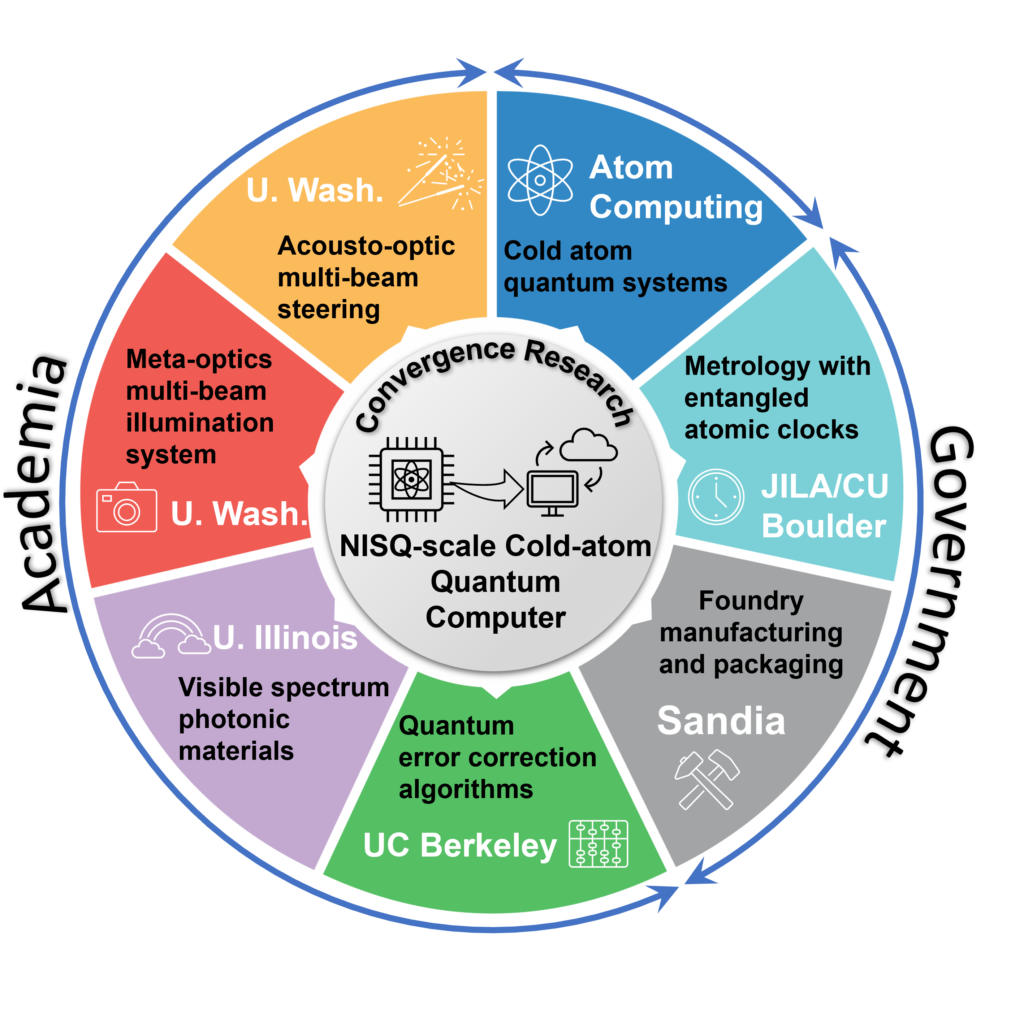The PEAQUE project, part of the NSF Convergence Accelerator’s Quantum Technology Track, addresses quantum computing scalability by developing a powerful optical control engine that interfaces cold atom qubits with quantum software.

The core of this engine is a chip-scale Multi-Beam Illumination and Steering (MBIS) system, which leverages the latest advances in nanophotonics and optical materials to generate a multitude of laser spots and precisely focus them on a dense atom array. Each MBIS module includes a pixel array of 10 lithographically patterned devices each capable of emitting 10 individually steerable laser beams, creating a module with 100 beams from a package sized only ~10 cm3, a miniaturization of 3 orders of magnitude over existing technology. Multiplexed modules in an MBIS engine will be able to perform high-speed, parallel gate operations on large 2D or 3D lattices of cold-atom qubits, which is impossible with existing technology. The power of MBIS will enable execution of quantum error correction (QEC) codes specially designed for cold atom qubits toward fault-tolerant computing.

The photonic engine will also power entangled atomic clocks in a large lattice to advance quantum metrology. The complete PEAQUE solution package will accelerate building of a cold-atom noisy intermediate-scale quantum (NISQ) computer with capable of solving optimization problems and performing quantum simulations.
Cold atom qubits, compared with other qubits (e.g., superconducting circuits, trapped ions, solid-state spins, or photons), have the decisive advantage of the ease in creating a large number of naturally identical qubits. To use them for quantum computing, optical control of each qubit in a large array is indispensable but has been a challenge for current technology. PEAQUE will overcome this bottleneck with MBIS’s unprecedented multibeam control and modulation capability. PEAQUE hardware will be mass produced at wafer-scale using industrial-scale foundries (Sandia National Labs), and disseminated, along with electronics and software, in a solution package to the quantum community.
For questions or inquiries, please contact lead PI Mo Li at moli96@uw.edu.
